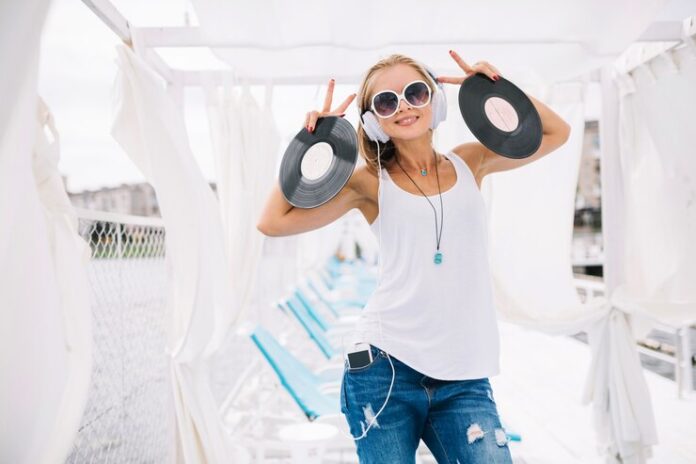In today’s fast-paced world, entertainment is not just a way to unwind; it’s an integral part of our daily lives, shaping our tastes, preferences, and identities. From the latest trends in fashion and music to the evolution of lifestyle entertainment, the connections between these elements are more pronounced than ever. This blog post will explore how these trends influence each other, reflect on their impact on culture and identity, and make predictions about the future of entertainment. Whether you’re a fashion enthusiast, a music lover, or someone simply interested in the entertainment landscape, there’s something here for you!
Trends in Fashion and Music
The Latest Trends in Fashion
Fashion is always in flux, driven by cultural movements, technological advancements, and societal changes. In recent years, we’ve seen a revival of 90s and early 2000s styles, characterized by bold colors, oversized silhouettes, and vintage references. This nostalgic trend has encouraged brands to reissue classic pieces, allowing consumers to reconnect with their past while staying fashionable.
Sustainable fashion is another significant trend. More consumers are prioritizing eco-friendly practices, with brands like Reformation and Patagonia leading the charge. They focus on transparency in sourcing materials and production processes, appealing to a generation that values environmental responsibility. This shift is not just about what we wear but how these choices reflect our values.
The Soundtrack of Our Lives
Music plays a crucial role in shaping fashion trends. Think about how artists like Billie Eilish or Lil Nas X have significantly influenced styles with their unique aesthetics. Billie’s oversized clothing and eclectic looks challenge conventional beauty standards, inspiring fans to express individuality through their fashion choices. Similarly, Lil Nas X’s bold and colorful wardrobe showcases a blend of genres and influences, encouraging others to experiment fearlessly.
Additionally, we can’t overlook the rise of social media platforms like TikTok, which have become major players in dictating fashion trends. Songs often go viral, leading to specific styles or items becoming must-haves. For example, the resurgence of the “Y2K” aesthetic owes much to the popularity of specific songs and viral dance challenges that showcase particular styles.
The Interplay Between Fashion and Music
These trends highlight the intricate relationship between fashion and music. Artists not only inspire fashion choices but also use their style to enhance their brand and convey messages. Music videos serve as visual narratives, where outfits, colors, and settings come together to create an unforgettable experience. For instance, the fashion choices in Beyoncé’s “Formation” video sparked conversations about cultural identity and empowerment, illustrating how fashion can be a powerful form of expression.

Through collaborations between musicians and fashion designers, the lines continue to blur. Brands like Balenciaga and Gucci have partnered with artists to create exclusive collections, merging high fashion with pop culture. This synergy not only elevates the brand’s profile but also brings music fans into the fold, creating a community that celebrates both art forms.
The Evolution of Lifestyle Entertainment
A Historical Perspective
The concept of entertainment has significantly evolved over the years. What began as simple storytelling and oral traditions has transformed into a diverse industry encompassing film, music, fashion, and digital media. In the early 20th century, cinema became a dominant form of entertainment, drawing massive audiences that craved escapism from their daily lives.
Television followed suit, offering households a new way to experience culture and news. Shows like “The Ed Sullivan Show” shaped popular music trends and catapulted artists to fame. It’s fascinating to see how each era defined entertainment, reflecting societal changes and technological advancements.
The Digital Revolution
Today, the internet has revolutionized how we consume content. Streaming services like Netflix and Spotify have changed the game, allowing us to access vast libraries of music and films at our fingertips. Social media platforms have empowered content creators to reach audiences directly, bypassing traditional gatekeepers. This democratization of entertainment means anyone can share their talents, from musicians to fashion influencers, significantly altering consumer engagement.
Interactive entertainment has also grown, with video games becoming a dominant force in lifestyle entertainment. Gaming communities have formed around popular titles, fostering connections between players worldwide. The blend of gaming with music and fashion, such as virtual concerts in games like Fortnite, illustrates how these industries intersect in exciting ways.
The Rise of Influencer Culture
Influencer culture has further changed the landscape of lifestyle entertainment. Social media stars wield significant power in shaping trends, often bridging gaps between music, fashion, and lifestyle. Brands collaborate with influencers to reach target audiences more effectively, promoting products through authentic storytelling and curated content.
This shift also encourages individuals to curate their own online presence, blending personal interests in a way that reflects their unique identities. The idea of being a “lifestyle brand” has become a reality for many, as folks share insights into their fashion choices, music tastes, and daily lives.
Impact on Culture and Identity
Shaping Cultural Norms
Entertainment plays a crucial role in shaping cultural norms and values. Fashion and music often reflect societal changes, addressing issues such as race, gender, and sexuality. Artists who challenge the status quo through their work inspire audiences to question existing norms, opening doors for dialogue and change.
The ability of entertainment to drive social movements has been significant. For example, the Black Lives Matter movement has found a voice through artists who use their platforms to advocate for justice and equality. Songs that resonate with social issues can unite communities and encourage collective action.
Personal Identity and Expression
At the intersection of entertainment, fashion, and music lies personal identity. People often use these elements to express themselves, creating a sense of belonging within various communities. Whether it’s adopting a specific fashion style that resonates with a favorite artist or curating a playlist that reflects one’s mood, entertainment allows individuals to communicate their identities creatively.
Furthermore, the rise of subcultures—such as goth, punk, or hip-hop—demonstrates how entertainment helps individuals find their tribe. These movements often influence mainstream culture, showcasing the power of community rooted in shared interests.
Bridging Generational Gaps
Entertainment also serves as a bridge between generations. Music continuously evolves, yet classic tracks from the past remain influential. Platforms like YouTube allow younger generations to discover older music, creating dialogues between generations about the significance of these cultural artifacts.
Fashion, too, has cyclical trends, with retro styles making comebacks. For example, the resurgence of 90s fashion and music has led to renewed discussions about cultural significance, personal memories, and the impact of nostalgia on contemporary life.
The Future of Entertainment
Predictions for the Industry
The future of entertainment is undoubtedly exciting, driven by advancements in technology and changing consumer behaviors. Streaming platforms will likely continue to dominate, evolving to offer more personalized experiences. Expect algorithms to become even more sophisticated, recommending content based on individual preferences and viewing habits.
Virtual and augmented reality are poised to revolutionize the way we experience entertainment. Imagine attending a live concert from your living room or stepping into an interactive movie. These technologies will create immersive experiences, blurring the lines between the real and the virtual.
The Role of AI and Technology
Artificial intelligence (AI) will play a significant role in content creation and distribution. From generating music to writing scripts, AI is set to become an essential tool for creators. This transformation might lead to new forms of storytelling that challenge traditional methods, pushing the boundaries of creativity.
Additionally, social media will continue to evolve, shaping how we interact with content. The rise of ephemeral content, like stories, suggests that audiences crave authenticity and immediacy. Brands will need to adapt their strategies to engage consumers meaningfully.
Sustainability and Ethical Considerations
As awareness of sustainability grows, the entertainment industry will be expected to address ethical considerations in production and consumption. The shift towards sustainable fashion is already evident, and similar movements may arise in music and film. Consumers will demand transparency regarding the environmental impact of their favorite shows and artists, prompting the industry to adopt more responsible practices.
Conclusion
Staying updated on entertainment trends is vital in our fast-paced world. Fashion, music, and lifestyle continually influence one another, shaping cultural norms and personal identities. By understanding these interconnected dynamics, you can enrich your appreciation of entertainment and remain engaged in cultural conversations.

